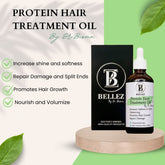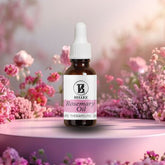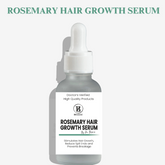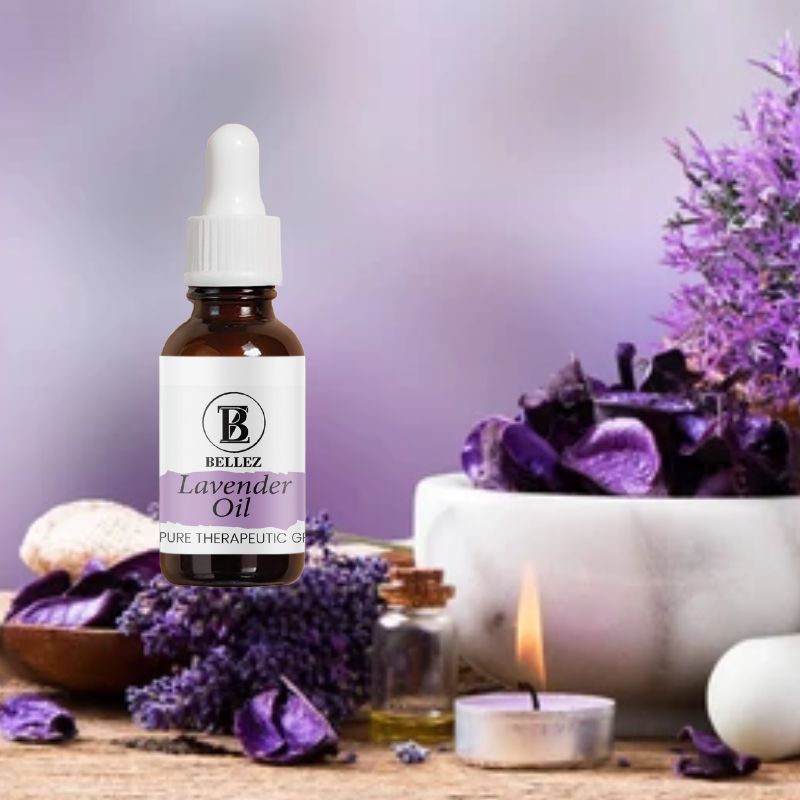
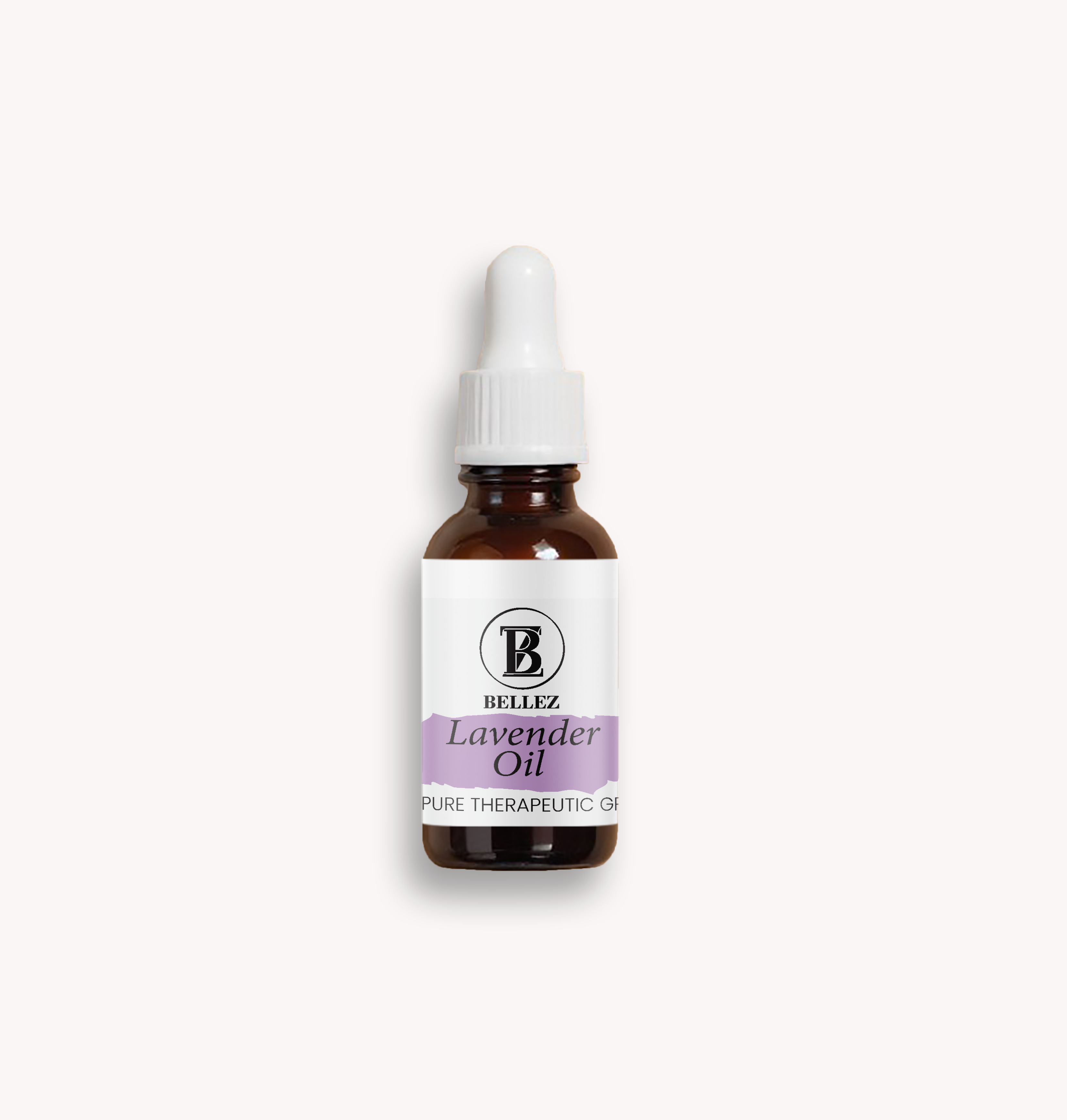
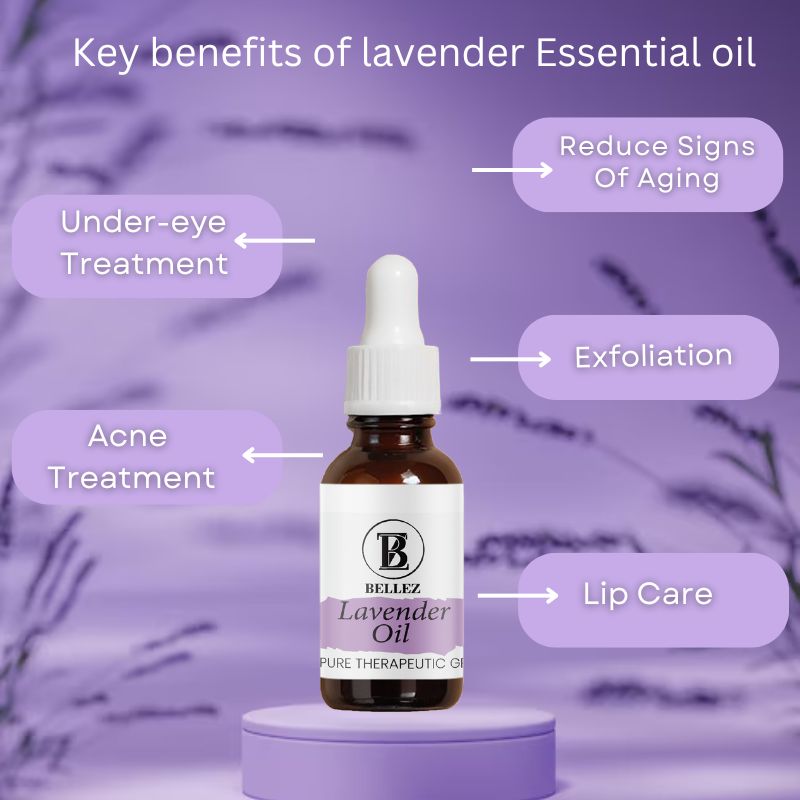
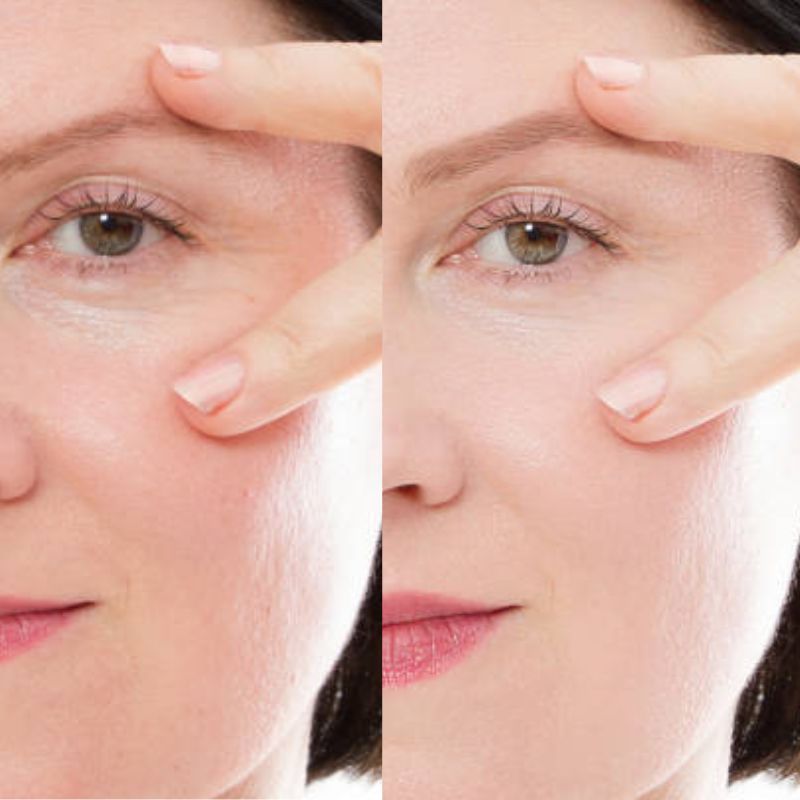
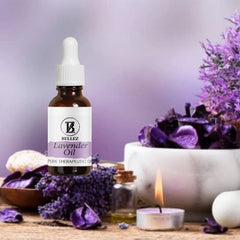
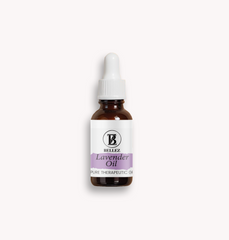
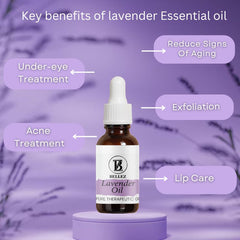
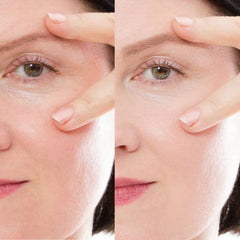
Lavender Essential Oil is a versatile essential oil known for its calming and soothing properties. Extracted from the flowers of the lavender plant, it is widely used in skincare, aromatherapy, and hair care. Lavender Oil promotes relaxation, reduces stress, and supports restful sleep. It also offers anti-inflammatory and antiseptic benefits, making it ideal for treating skin irritations, acne, and minor burns. Its gentle, floral scent makes it a popular addition to beauty products, helping to balance both mind and body.
Benefits of using Lavender Essential Oil:
Anti-aging: Rich in antioxidants, Lavender Oil helps reduce fine lines and wrinkles, promoting a youthful complexion.
Under-eye Treatment: Dilute Lavender Oil with a carrier oil and gently apply under the eyes to reduce puffiness and dark circles.
Exfoliation: Add a few drops of Lavender Oil to a sugar or salt scrub to gently exfoliate and calm the skin during your body scrub routine.
Acne Treatment: Its antibacterial and anti-inflammatory properties help reduce acne and calm irritated skin.
Skin Soothing: Helps soothe burns, cuts, and skin irritations while promoting faster healing.
Hair Care: Promotes healthy hair growth, soothes the scalp, and adds shine to hair while reducing dandruff.
Lip Care: Add a drop of Lavender Oil to your lip balm or mix with coconut oil to moisturize and soothe dry or chapped lips.
Directions for using Lavender Essential Oil:
Here are the directions for using Lavender Oil for various beauty purposes:
- Acne Treatment:
- Dilute 1-2 drops of Lavender Oil with a carrier oil (like jojoba or coconut oil).
- Apply directly to blemishes using a cotton swab, 1-2 times daily.
- Skin Soothing:
- Dilute 2-3 drops of Lavender Oil with a carrier oil.
- Gently apply to burns, cuts, or irritated skin to soothe and promote healing.
- Anti-aging:
- Add 1-2 drops of Lavender Oil to your moisturizer or serum.
- Massage into the face in upward motions to reduce fine lines and promote a youthful complexion.
- Lip Care:
- Add a drop of Lavender Oil to your lip balm or mix with coconut oil.
- Apply to lips to moisturize and soothe dry or chapped lips.
- Under-eye Treatment:
- Dilute Lavender Oil with a carrier oil (like almond or jojoba oil).
- Gently apply under the eyes to reduce puffiness and dark circles.
- Exfoliation:
- Add 2-3 drops of Lavender Oil to a sugar or salt scrub.
- Gently massage the mixture onto the skin in circular motions during your exfoliating routine.
- Hair Care:
- Add 5-10 drops of Lavender Oil to your shampoo or conditioner.
- Massage into the scalp and hair, then rinse. For a more intensive treatment, mix with a carrier oil and leave on the scalp for 20-30 minutes before washing.
Note: Always dilute Lavender Oil with carrier oil before applying to the skin. Perform a patch test before use to ensure no irritation occurs.
Dilution Guidelines of using Lavender Essential Oil:
General dilution guidelines for essential oils suggest using 1-2 drops of essential oil per 1 teaspoon (5 ml) of carrier oil for everyday use, which equals a 1-2% dilution for adults. For sensitive skin or children, a 0.5-1% dilution is recommended, with 1 drop per 1 tablespoon (15 ml) of carrier oil. Always do a patch test first and avoid using undiluted oils on the skin.
Precautions:
· Patch Test: Always perform a patch test on a small area of skin (like your inner wrist) to check for any sensitivity or allergic reactions before using Vitamin E Essential Oil more widely.
· Use with Caution for Pregnant or Nursing Women: If you are pregnant or breastfeeding, consult a doctor before using any essential oils, including Vitamin E.
· Avoid Direct Eye Contact: Keep Vitamin E oil away from your eyes. If contact occurs, rinse immediately with water.
· Dilution: Always dilute Essential oil with a carrier oil (such as almond, coconut, or jojoba oil) to avoid skin irritation.
· Patch Test: Before applying it to your face or large areas of skin, perform a patch test on a small area of your body (like the inside of your wrist) to ensure you don’t have an allergic reaction.
· Avoid Eye Area: If you're using pure Vitamin E oil, be cautious when applying it near the eyes, as it can cause irritation for some people. For the delicate skin around the eyes, look for formulations specifically designed for that area.
- Choosing a selection results in a full page refresh.

